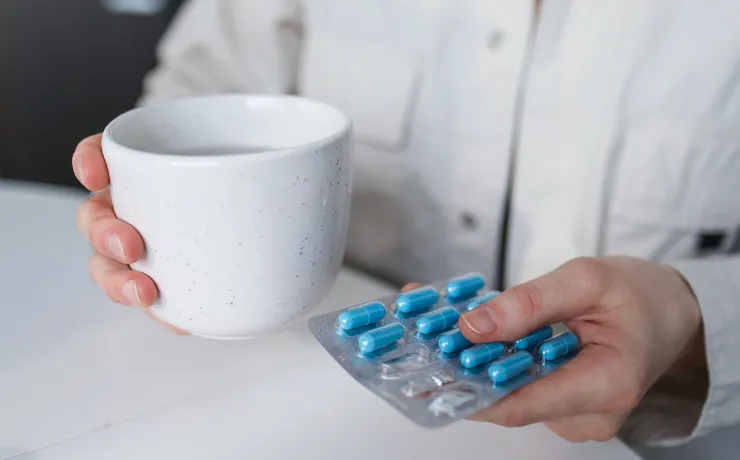The Right Way to Take Antibiotics (And Why It Matters)

Antibiotics are one of the most common medications prescribed to treat bacterial infections. When used correctly, they can be life-saving and help you recover quickly. At Central Pharmacy, we want our patients to understand how to use antibiotics safely and effectively.
What Are Antibiotics?
Antibiotics are medicines that help your body fight bacterial infections. They work by either killing bacteria or stopping them from multiplying. While antibiotics are very effective against bacterial infections, they do not work for viruses, such as colds, flu, or most sore throats.
Why Taking Antibiotics Correctly Matters
Taking antibiotics the wrong way can cause problems such as:
-
Incomplete treatment: The infection may not fully clear, leading to a relapse.
-
Antibiotic resistance: Bacteria can adapt and become harder to treat in the future.
-
Side effects: Incorrect use may increase the risk of side effects like stomach upset or allergic reactions.
Following your prescription exactly as directed is essential for your health and for preventing wider public health issues.
How to Take Antibiotics Safely
Here are some important tips to ensure you get the most benefit from antibiotics:
1. Follow the Prescription
-
Take the exact dose at the times recommended.
-
Do not skip doses, even if you feel better.
-
Complete the full course of antibiotics, unless your healthcare provider advises otherwise.
2. Take With or Without Food as Directed
Some antibiotics work better on an empty stomach, while others are easier on your stomach when taken with food. Always read the instructions or ask your pharmacist.
3. Avoid Mixing With Certain Substances
Some foods, supplements, or medications can affect how antibiotics work. For example:
-
Dairy products may reduce absorption of some antibiotics.
-
Alcohol may worsen side effects or reduce effectiveness.
Check with your pharmacist for guidance on what to avoid.
4. Watch for Side Effects
Common side effects can include:
-
Nausea or upset stomach
-
Diarrhea
-
Rash or itching
If you experience severe reactions such as difficulty breathing, swelling, or persistent fever, seek medical attention immediately.
5. Store Properly
Keep antibiotics in a cool, dry place and away from direct sunlight. Some may require refrigeration. Always check the storage instructions on the packaging.
Antibiotic Resistance: A Growing Concern
Using antibiotics incorrectly can contribute to antibiotic resistance, where bacteria evolve to resist treatment. This makes infections harder to treat and can lead to longer illnesses, more doctor visits, and increased risk of complications.
To help prevent resistance:
-
Never share your antibiotics with others.
-
Do not use leftover antibiotics for a new illness.
-
Only take antibiotics prescribed by a healthcare professional.
When to Contact Your Pharmacist or Doctor
Reach out to your healthcare provider if you experience:
-
Symptoms that do not improve after starting antibiotics
-
Severe or unusual side effects
-
Questions about interactions with other medications
At Central Pharmacy, our pharmacists are available to answer questions, provide guidance on proper use, and support safe antibiotic use.
Supporting Your Recovery
In addition to taking antibiotics correctly, you can support your recovery by:
-
Getting plenty of rest
-
Staying hydrated
-
Eating a balanced diet
-
Avoiding smoking and alcohol, which may interfere with healing
Key Takeaways
-
Antibiotics treat bacterial infections, not viruses.
-
Always follow the prescription exactly, completing the full course.
-
Avoid mixing with certain foods, supplements, or alcohol unless directed.
-
Watch for side effects and consult your pharmacist or doctor if needed.
-
Proper use helps prevent antibiotic resistance and ensures future effectiveness.
By following these guidelines, you can get the most benefit from your antibiotics while keeping yourself and your community healthy.
Snippet From our blog
Explore helpful tips, expert insights, and the latest health updates on our blog. Find practical advice and resources to support a healthier life.